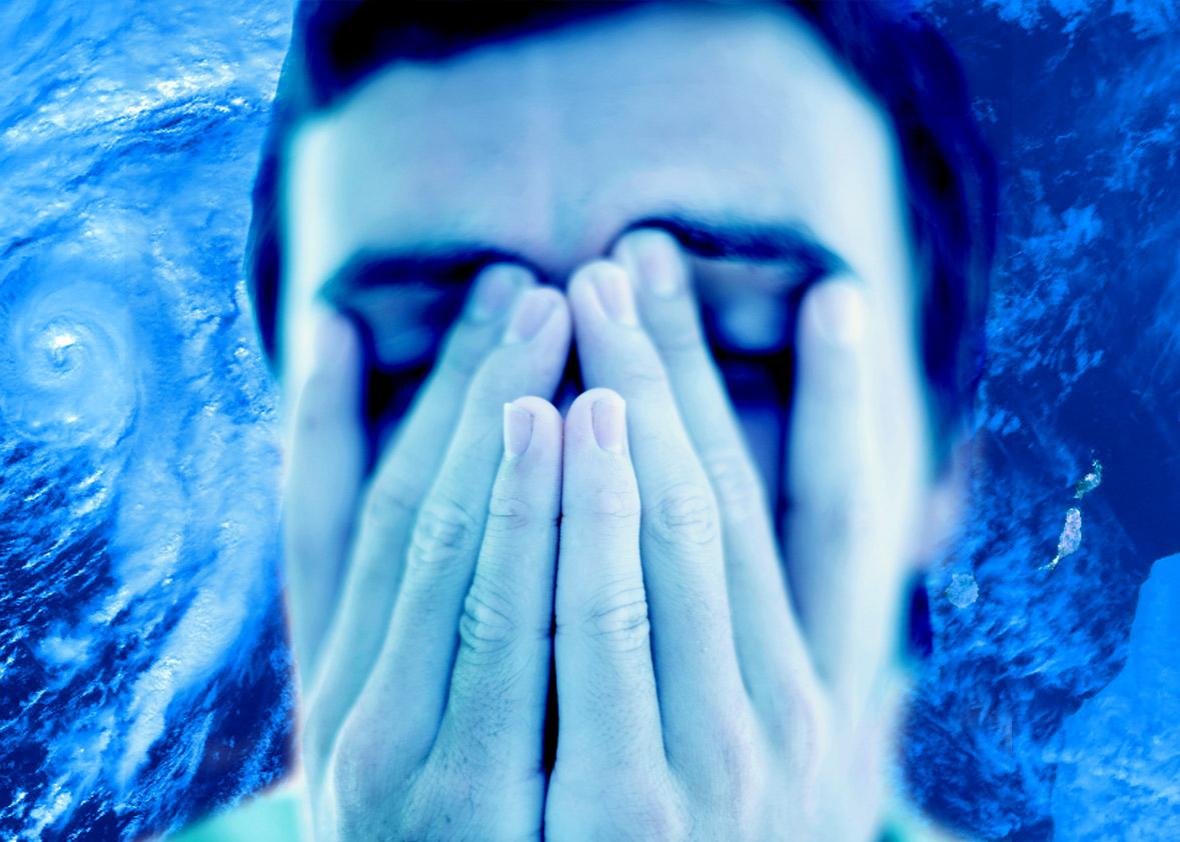A month ago, as I wrote about how a warm front has briefly made the North Pole warmer than parts of the Sahara Desert—in the middle of winter, when it’s dark 24 hours a day—I felt a knot in my stomach. It’s the kind of event that you intuitively know has never happened before and should never happen. The process of proving it to myself anyway—calling Arctic scientists, looking up historical weather data—just felt like salt in the wound to someone who sometimes has strong emotional responses to chronicling climate change.
It’s taken me almost two months to write this essay. It’s not the writing that took so long—it’s that I really don’t like thinking about climate change in personal terms more than I have to. Reading and writing about climate change for a living is a bit like being a beer taste tester: It’s interesting, but if you’re going to do it on a daily basis, you have to spit it out, or you’ll wind up incapacitated. My wife has forbidden me from talking about my work with her, because she doesn’t want to think about it more than she already does.
So, yes, I feel a mix of anxiety, depression, hope, fear, and dread every day. On most days, I’m able to separate myself from thinking about what’s actually going on and just cover the interesting new scientific developments from a step back. But there are days when I physically can’t write what seems like one more dumb article about a problem so huge and overwhelming. (Today was one of them. My wife just walked by and said, “Need a shot of whiskey?”)
On days like this, I try to take the dog for a walk or take my 1-year-old to the park. And that’s what helps the most: remembering that even if things are going to hell, there’s still a constant stream of beauty and priceless things worth fighting for.
To feel like I’m fully realizing the implications of what I read and write as a responsible scientist and journalist—and human—we’ve had to make some life changes. We’ve had quite a few in recent years: deciding to have a baby, moving a few times and deciding what house to live in, struggling with being off-and-on vegan, and sharply limiting how much we fly.
I recently contacted three or four ethicists to help me think about how to do all this the “right” way. All of our family live at least 1,000 miles away, so I’ve been thinking a lot more about my vow to quit flying. My wife and I have also been emailing with Carl Safina, who’s a legend in the conservation world and has also struggled with doing effective work while trying to live an ethical life. He passed on this pearl of wisdom: “The way the world is is not your fault.”
I’m starting to realize that all of my actions have good and bad aspects, and it’s not possible to live a perfectly ethical life. So here’s my New Year’s resolution: Go outside more often. When all feels lost, it’s important not to lose sight of the incredible good that remains.
